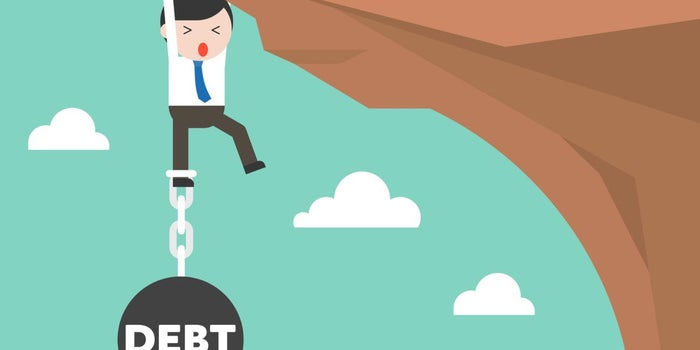What is Minimalism?
- Wellanda

- Apr 26, 2020
- 4 min read
Updated: Jun 9, 2020
Choosing to be a minimalist is not simply decluttering stuff, rather than that, we dedicate ourselves to live in a more meaningful, simplified, and mindful way. It is not only the way of living but also a passion to grow ourselves as well as fulfilling the true meaning of life.

Source: https://nosidebar.com/benefits-of-minimalism/
What is minimalism?
Although there are several ways of defining “minimalism”, generally speaking, minimalism can be explained as follows:
- Minimalism means intentionally owning less, in other words, minimalism is intentionally living with what we need in our lives without being distracted by excess. With intention, we have the passion to improve the aspects of our lives consistently and deeply
- It frees us from the desire to possess. Accumulating materials as much as possible does not allow us to live with freedom, happiness can not be purchased at the Amazon or eBay. When we stay focus inward, we tend to value our relationships, experiences, spiritual practice, which might bring us joy and fulfillment, rather than materials.
- It is intentional and consistent action. Minimalism means intentionally and consciously practicing the things we most value and eliminating all things distracting us
- It is not an external matter but an internal one, minimalism is a matter of the heart. Minimalism is the matter of self-discipline, self-commitment, there will be the goals and action plan for what we aim to do. When staying focus, we create a room in our heart to grow the seeds of relationship and beauty of life.
- It can be practical and attainable. According to the SMART principle, every goal is set should be achievable. The more we engage the minimalism into our daily life practice, the more we can find it unique and simple to practice.
What is “Rational Minimalism”?
“Rational Minimalism”, which was defined by Joshua Becker, basically has the similar meaning with Minimalism in general. However, rational minimalism emphasizes the intention, consciousness in our practice, so that we stay focus on the most valuable stuff to us and remove all things that distract us
Why going minimalism?
There are some reasons why we should go minimalism:
- We might not need either all our belongings or a huge house or apartment
- We will spend less by earning more but spending less, and only concentrate on what we need
- We will set yourselves free from stress without worrying about debt payment or being distracted
- Minimalism will help us stay focus, live in the moment, and be more productive
- There is an environmental benefit for being a minimalist
- We will have time to discover the purpose of our life as well as grow as an individual
7 Simplify Guiding Principles (By author Joshua Becker)
In the book named “Simplify” written by author Joshua Becker in 2010, who is also a minimalist, Joshua leads us to go through 7 guiding principles of minimalism. “The more stuff you own, the more your stuff owns you” is my favorite quote, the less we own, the more we have. Although we might find ourselves struggling at the beginning, the more we practice and engage the principles of minimalism into our daily lives, the more we are familiar with this term and are aware of the meaning of our lives.

- Be convinced: Before we practice minimalism, we should set our visualized goal, which follows our passion and desire of our heart. Without the mission, we might only know what we want for the short term without the commitment for the sustainable long-term
- Make it works for you. When we know what we most value, we intentionally and consciously apply the style of minimalism that is truly designed for us. What works for others is not necessary works for us.
- Jump right in and start with the small, manageable job first, before we plan to go further. The general rule of thumb is “If it is not essential, remove it”
- Stop the trend. This is my favorite principle. When we stop following the majority but stay focus inward, we will almost care about the most valuable and meaningful time to us, which might be the time we spend with family and friends, do physical exercises and meditation, read some books, and so forth. We might less care about how much we earn, how many hours we work, how expensive the house we live in is, etc.
- Persevere or be determined about the choice of minimalism living.
- Share the joy. One of the tactics to persevere what we value is sharing with others, to bring the meaning of minimalism to the community, and inspire them to live in a further conscious way, “simply enjoy the experiences of life, the people of life, and the journey of life – not the things of life”
- Simplify everywhere. “What then, are the ‘big rocks’ in your life? Since becoming minimalist, we have been able to identify the big rocks in our lives – our kids, our friends, our faith, our goals, and our influence. Simplifying life is about identifying the big rocks, putting them in the jar, and intentionally eliminating the little rocks.”
Source:
Becker, Joshua. “Why is Minimalism?”. Becoming Minimalist. https://www.becomingminimalist.com/what-is-minimalism/
Becker, Joshua. “Simplify – 7 Guiding Principles to Help Anyone Declutter Their Home and Life” (2011)
Manson, Mark. ”Minimalism”. https://markmanson.net/minimalism
Murray, Christopher. “Minimalist Living: Is Minimalism Just a Fad? Or Can It Really Help You Solve All Your Financial Problems?”. Monet Under 30. 20 March. 2020. https://www.moneyunder30.com/minimalist-living
Tolentino, Jia. “The Pitfalls and The Potential of the New Minimalism”. The New Yorker. 27 January. 2020. https://www.newyorker.com/magazine/2020/02/03/the-pitfalls-and-the-potential-of-the-new-minimalism






Comments